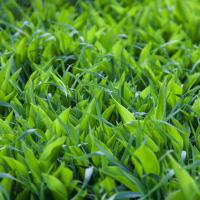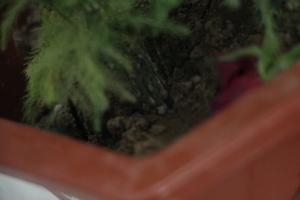Introduction
Catnip plants are fascinating herbs that are often used to stimulate cats. However, like all plants, they require proper care and nutrition to thrive. Calcium is an essential mineral that plays a crucial role in the growth and development of plants, including catnip plants. In this article, we will discuss the benefits of calcium for catnip plants in pots.
The importance of calcium for catnip plants
Calcium is one of the essential macronutrients that plants need to grow and function correctly. It plays an important role in the structure and function of plant cells, facilitating the movement of nutrients and water through the plant. Calcium deficiency in plants can result in a range of negative effects, including stunted growth, poor fruit development, and increased susceptibility to disease and pests.
Symptoms of calcium deficiency in catnip plants
If your catnip plants are deficient in calcium, they may exhibit various symptoms, including yellowing of leaves and stunted growth. In advanced cases, the leaves may curl or wilt, and the stems may become brittle and easily broken. To determine if your plants are deficient in calcium, it is essential to test the soil's pH level regularly. Ideally, the optimal pH range for catnip plants is between 6.5 to 7.0.
How to provide calcium to catnip plants in pots
There are several ways to provide calcium to catnip plants in pots. One way is to use calcium-rich fertilizers, which can be either organic or synthetic. Organic fertilizers like bone meal, fish bone meal, and compost are excellent sources of calcium, and they provide other essential nutrients to the plants. Synthetic fertilizers like calcium nitrate and calcium ammonium nitrate are also effective, but they may contain high levels of nitrogen, which can burn the plant roots if not used correctly.
Another way to provide calcium to catnip plants is to use calcium supplements. Calcium supplements like calcium carbonate and calcium sulfate can be added to the soil or mixed with water and applied to the plants' leaves as a foliar spray. These supplements help raise the soil's pH level, making it more alkaline, which promotes the absorption of calcium and other essential nutrients by the plants.
Precautions when using calcium supplements
When using calcium supplements, it is essential to follow the manufacturer's instructions carefully. Overuse of supplements can lead to calcium toxicity, which can cause nutrient imbalances and other negative effects. Additionally, it is essential to ensure that the supplements are applied evenly across all plants to prevent uneven absorption, which can lead to nutrient deficiencies in some plants.
Conclusion
Calcium is an essential nutrient that is important for the growth and development of catnip plants. It is crucial to provide adequate amounts of calcium to your plants to ensure that they grow and thrive correctly. By following the tips and precautions listed in this article, you can provide your catnip plants with the proper nutrition they need to stay healthy and perform their feline-attracting magic.

 how many times do yo...
how many times do yo... how many planted tre...
how many planted tre... how many pine trees ...
how many pine trees ... how many pecan trees...
how many pecan trees... how many plants comp...
how many plants comp... how many plants can ...
how many plants can ... how many plants and ...
how many plants and ... how many pepper plan...
how many pepper plan...
































